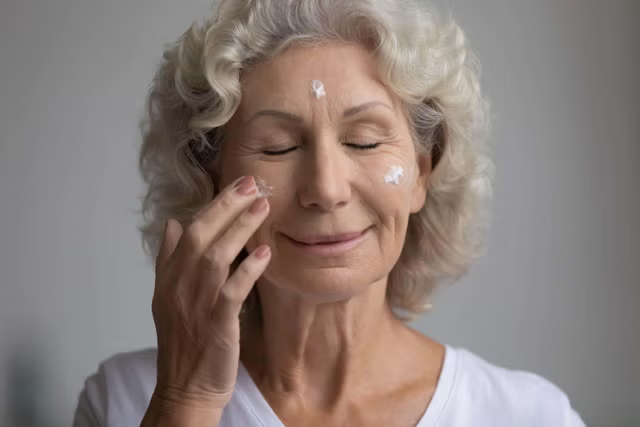Your support helps us to tell the story
Support NowThis election is still a dead heat, according to most polls. In a fight with such wafer-thin margins, we need reporters on the ground talking to the people Trump and Harris are courting. Your support allows us to keep sending journalists to the story.
The Independent is trusted by 27 million Americans from across the entire political spectrum every month. Unlike many other quality news outlets, we choose not to lock you out of our reporting and analysis with paywalls. But quality journalism must still be paid for.
Help us keep bring these critical stories to light. Your support makes all the difference.
Marina Diamandis, known under her stage name Marina and the Diamonds, has opened up about her struggles with bulimia.
Bulimia is a serious mental illness that affects around 230,000 people in the UK.
Those who suffer with the condition are caught in a cycle or eating large amounts of food (called a binge) and may later try to compensate by vomiting, excessively exercising or taking laxatives (called a purge).
Diamandis, 39, experienced disordered eating issues until 2012 – the year her second album Electra Heart reached No 1 in the UK charts, following her hit debut record The Family Jewels in 2010.
Speaking to The Times, Diamandis said she no longer struggles to speak about bulimia openly thanks to her 12 years of recovery. “There’s so much distance,” she said.
“With recovery, you’re told you will never recover completely, which I haven’t found to be true,” she added. “I feel fully recovered. Looking back to that time, it’s almost unbelievable because I don’t relate to that person.”
The “Primadonna” singer explores bulimia in her new poetry collection titled Eat the World.

In the collection’s opening poem “Aspartame” she writes about a 20-year-old who is “rail thin” and has had her “tooth enamel dissolved by stomach acid”.
One line reads: “My plan to be thin hadn’t worked. I didn’t make him love me.”
Diamandis explained the importance behind openly discussing eating disorders, especially bulimia. “It is a topic that people feel ashamed about or secretive about because that’s the nature of the illness,” she said.
“It’s based on secrecy. So I think it’s good to talk about it.”
Elsewhere in the interview, Diamandis discussed the revival of late 2000s to early 2010s fashion, which has retrospectively been dubbed “indie sleaze”.

The “How to Be a Heartbreaker” singer reflected how women in the entertainment industry were expected to be unhealthily thin at the time.
“I don’t want to name names,” she said. “But size-zero celebs… it was just so awful.”
She added: “I was thinking about this the other day. I was talking to my producer and I said, ‘Men treated women horribly in those subcultures.’ It was not a good time.”
It comes shortly after Diamandis revealed she was diagnosed with chronic fatigue syndrome in 2023.
The condition, also known as myalgic encephalomyelitis (ME), resulted in symptoms such as “deep fatigue, numbness, tingling, low appetite, brain fog, rashes, insomnia and a feeling of being ‘poisoned’ for so long”.

Diamandis shared that she was only diagnosed after “seven years of health issues”, adding that “it’s been hard to remember what [being] healthy feels like”.
In her post, Diamandis claimed that her symptoms “are a result of a hypersensitive nervous system” that developed in response to “chronic stress”.
The singer also said that living with ME has given her a “deeper empathy for the millions of people who live silently with chronic illness”.
“It’s hard to maintain optimism when the world feels like it’s moving on without you, but hope always exists. Answers always exist,” she said.
“The body wants to heal – and what I’ve learned is that you have to work with it, not against it.”
For anyone struggling with the issues raised in this article, eating disorder charity Beat’s helpline is available 365 days a year on 0808 801 0677.
NCFED offers information, resources and counselling for those suffering from eating disorders, as well as their support networks. Visit eating-disorders.org.uk or call 0845 838 2040
Disclaimer: The copyright of this article belongs to the original author. Reposting this article is solely for the purpose of information dissemination and does not constitute any investment advice. If there is any infringement, please contact us immediately. We will make corrections or deletions as necessary. Thank you.



